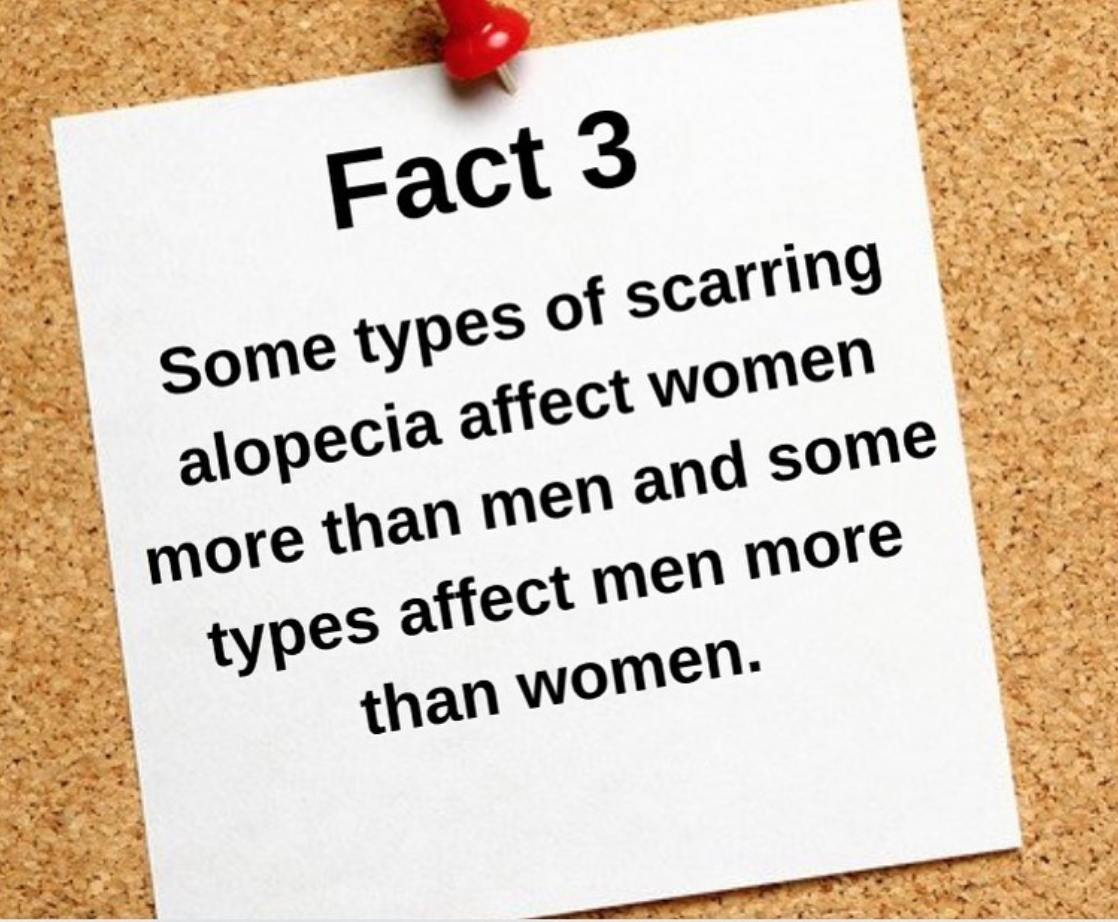National Scarring Alopecia Awareness Month (Day 3, Fact 3): Does scarring alopecia affect men and women equally ?
Some Scarring Alopecia Affect Women More than Men and Some Men more than Women.
The various types of scarring alopecia do not affect men and women equally. Some scarring alopecias are more likely to affect women and some are more likely to affect men.
Frontal fibrosing alopecia (FFA) predominantly is a condition in women with approximately 99 % of FFA patients being female and just 1 % being male. Central centrifugal cicatricial alopecia (CCCA) predominantly affects women although men can be affected. The female to male ratio is not clear but may be 15:1 or higher.
Lichen planopilaris (LPP) is also more common in women with some studies suggesting it is 2 times more common in females than males and other studies suggesting it may be up to 9 times more common. Discoid lupus (DLE) affects women slightly more than men with some studies suggesting up to five fold greater prevalence in women.
Folliculitis decalvans (FD) is more common in men. Studies vary tremendously as to how much more common FD is among men. Estimates range from 1.7 to 3 folder higher. Dissecting Cellulitis (DSC) is more common in males too with some studies suggesting a male to female ratio of 4:1 and others suggesting this ratio may be as high as 50:1.
The reason for these differences is not clear although it is common attributed to differences in “hormones.” The more frequently a disease affects women the more likely researchers are to hypothesize that differences in hormones like estrogen are responsible. Similarly the more frequently a condition affects males the more frequently researchers will hypothesize than androgen hormones like testosterone are responsible. While there is evidence for this in each of these diseases the exact role is still unclear. More research is needed to better understand all of the scarring alopecias.
This article was written by Dr. Jeff Donovan, a Canadian and US board certified dermatologist specializing exclusively in hair loss.


